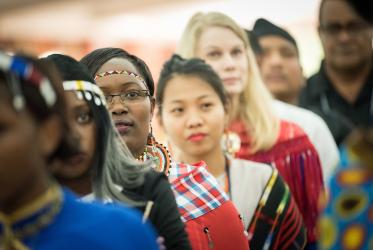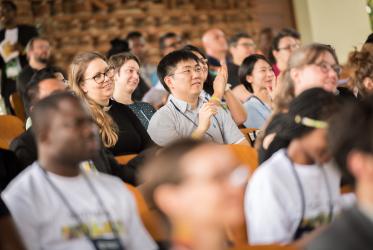2018 Ecumenical School on Governance, Economics and Management (GEM) for an Economy of Life
In order to strengthen the voice of the churches with regards to global economics, a group of 18 current and future leaders representing the churches will have the opportunity to attend the Ecumenical School on Governance, Economics and Management (GEM) for an Economy of Life in Mexico City, Mexico from 19-31 August 2018.
This initiative responds to recommendations formulated for the World Communion of Reformed Churches, the World Council of Churches, the Council for World Mission and the Lutheran World Federation in the Sao Paulo Statement: International Financial transformation for an Economy of Life and in the document Economy of Life for All Now: An Ecumenical Action Plan for a New International Financial and Economic Architecture, which identified as a priority the development of competencies in economics within churches.
Presently churches’ ethical, moral and theological perspectives on the workings of the global economy have minimal impact on financial and economic policies, business practices and ways of thinking. To address this gap, the GEM School aims to build economic literacy within churches by equipping participants with the tools and languages to effectively advocate for urgent transformations in the global financial and economic realm.
Learning objectives
The 10-day curriculum addresses the following objectives:
- Identify theological starting points for economic justice (i.e. why and how theology and ethics are related to economics)
- Provide a basic understanding of mainstream economic thinking
- Identify, relativize and contextualize methodologies and normative fundamentals of economics
- Widen the horizon of economics by introducing ecological, feminist and other pluralistic approaches
- Develop the interdisciplinary structure and ethical implications of combining theological dimensions with economics
- Lay out the political and strategic implications for churches and their advocacy for an Economy of Life in the context of the Pilgrimage of Justice and Peace.
Nomination criteria
- MA or BA preferably in theology, economics/finance/business management or any social science; or demonstration of competence in the aforementioned fields by engagement in issues of socio-economic and ecological justice through, for example, programmes or processes connected to sponsoring and other partner organizations
- Five years of leadership experience (except for youth until the age of 30)
- Sound insights into practices of public policy and passion for justice (assessed through an essay)
- Endorsement from a church or ecumenical organization
Among candidates who meet the nomination criteria, participants will be selected with a view to achieving regional, gender and denominational balance.
Participants are granted full scholarship, including flights, accommodation and full board. A minimum contribution of 100 US dollars is expected from each participant.
Application form and guidelines
Click here to download the application form
Click here to read the Participant Guidelines
Click here to download the Provisional Programme
Filled-out application forms and supporting documents should be sent to [email protected]. Further inquiries may be directed to [email protected].
The final date of submission of applications is on 15 February 2018. Selected participants will be informed by 10 March 2018.










